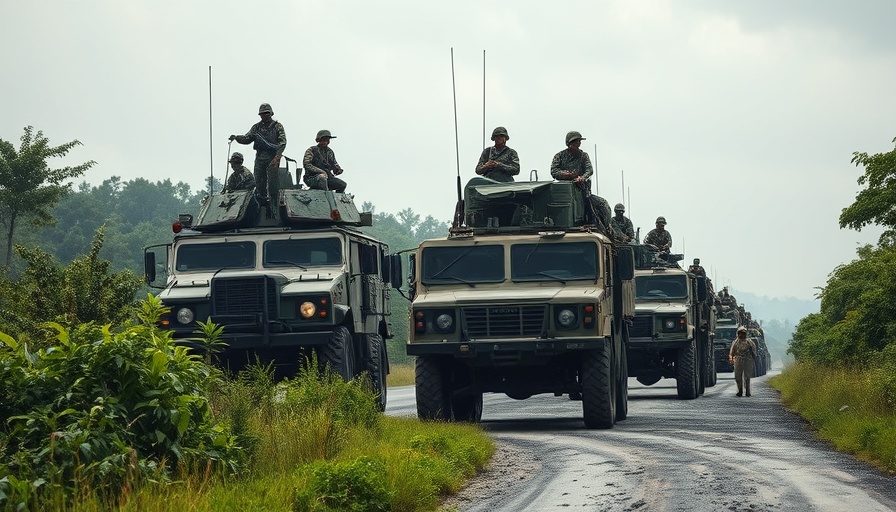
Understanding the Call for Genocide Recognition in the DRC
On August 2nd, known as Genocost Memorial Day, the Democratic Republic of Congo (DRC) witnessed a poignant gathering in the capital, Kinshasa. This ceremonial date stands as a reminder of the millions of lives lost due to relentless conflicts attributed to the exploitation of the nation’s rich natural resources. The event brought together officials, artists, and survivors under the banner of the National Reparations Fund for Victims, emphasizing the ongoing need for recognition and reparative justice.
In DRC: Tshisekedi wants genocide declared in conflict-hit regions, the discussion dives into the ongoing struggles for acknowledgment of the genocide, exploring key insights that sparked deeper analysis on our end.
A Plea for International Accountability
During the ceremony, President Felix Tshisekedi delivered a powerful call to action, urging the international community to acknowledge the atrocities committed against the Congolese people as genocide. He expressed a sense of urgency, stating, "If the world still hesitates to recognize this tragedy for what it is, a slow-moving genocide, we will not wait for others to validate our pain.” This assertion not only highlights the historical significance of the DRC's plight but also serves as a motivational rallying cry for those seeking justice amidst continued suffering.
Genocide and Exploitation: An Unbreakable Link
The events that led to the catastrophic loss of life in the DRC are intricately linked to the ongoing exploitation of its natural resources, including minerals vital for global technologies. Mining operations, often conducted illegally or unethically, have historically instigated violent conflicts among various groups vying for control. This dynamic raises critical questions about corporate responsibility and the role of international actors in facilitating these resource-driven conflicts.
The Human Cost: Stories from Survivors
At the memorial, survivors shared harrowing accounts of their experiences, speaking of violence, displacement, and loss. One survivor narrated, “When the war began in my village, there were many killings and atrocities. We were forced to flee to a neighboring village.” These personal testimonies are essential in understanding the scale of the violence and the psychological toll on the affected communities. They amplify the need for not only recognition of the genocide but also tangible support for the victims' rehabilitation and healing.
The Lighting of the Genocide Flame: A Symbol of Hope and Resistance
The culmination of the ceremony was marked by the lighting of the genocide flame, symbolic of remembrance and a relentless pursuit for justice. This flame stands not only as a tribute to the dead but also as a beacon for those fighting against the silence surrounding their experiences. For the Congolese, the flame ignites hope that their stories will not be brushed aside but instead will fuel the fight for meaningful reparations and international acknowledgment.
Future Implications of Genocide Recognition
The persistent call for genocide recognition by leaders like Tshisekedi opens various avenues for action on both local and international fronts. Should the global community begin to face this reality, it could lead to heightened international scrutiny over operations in the DRC and may compel corporations to adopt more ethically responsible practices. Furthermore, such recognition may foster greater solidarity within the African Union and across other regions in addressing atrocities and human rights violations.
Conclusion: A Call to Action for Global Citizens
The events memorialized on August 2nd reflect deep-seated issues of governance, accountability, and the eternal struggle for justice in the DRC. It’s imperative for global citizens, leaders, and organizations to engage in conversations about the Congolese plight. By expanding their understanding beyond mere headlines and walk through informed civic engagement, they can become advocates for the victims and push for recognition of the genocide that continues to cast a long shadow over the DRC.
As the world watches, it is crucial to not just sympathize but to act. Recognizing the systemic issues in the DRC and standing in solidarity with its people can pave the way for a hopeful future, where justice prevails, and the scars of history begin to heal.
 Add Row
Add Row  Add
Add 




Write A Comment